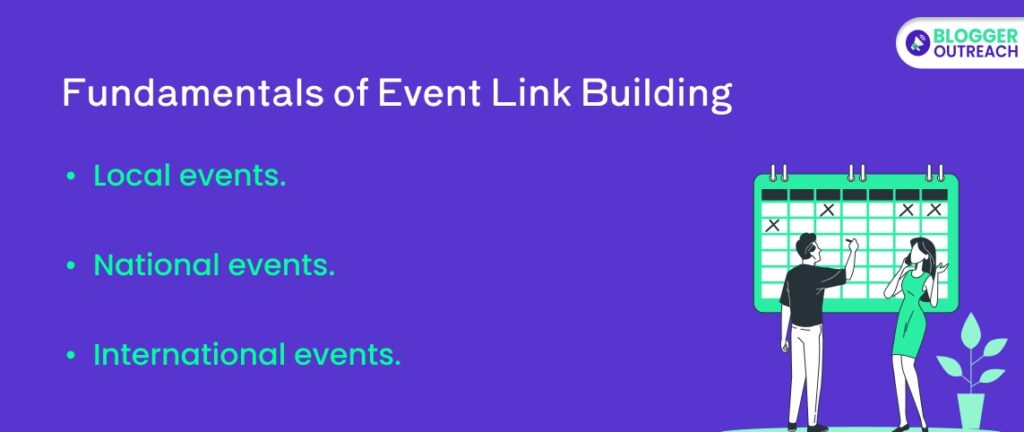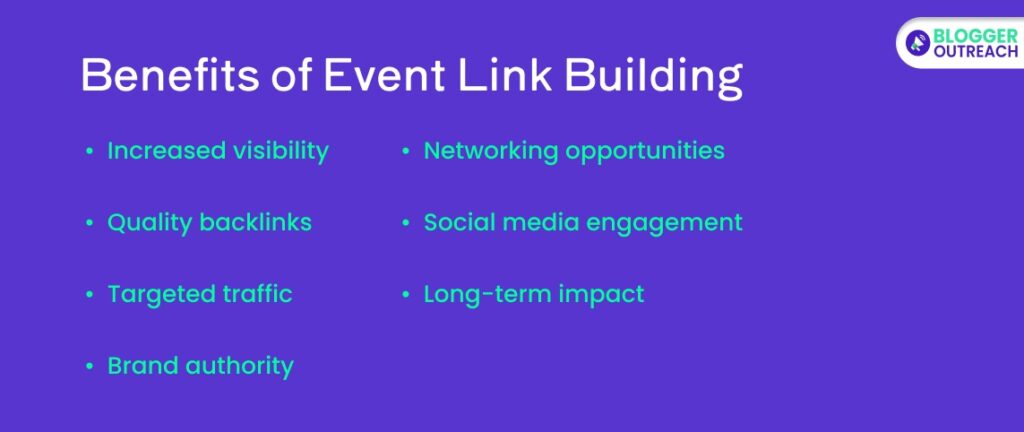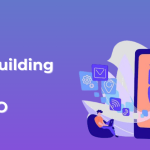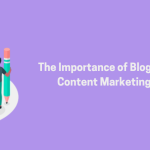Table Of Content
- 1 Fundamentals Of Event Link Building
- 2 Benefits Of Event Link Building
- 3 Event Link Building – 2 Ways To Do It
- 4 Sponsoring An Event – How To Find Relevant Events To Sponsor And Get Links?
- 5 How To Host An Event And Garner Backlinks?
- 6 Hosting An Event And Getting Links Is Possible If You Know These Strategies…
- 7 Frequently Asked Questions (FAQs):
- 8 And That’s A Wrap-Up!
Pages ranking #1 on Google get 3.8x more backlinks than pages ranking 2-10.
This is why link building is the most sought-after thing for SEOs.
However, the link building space is getting more and more competitive. That is why SEOs always look for different ways to generate links.
Here comes the secret link building weapon – event link building. Yes, you may not have considered this as only experts talk about event link building. But, it is quite a powerful strategy if you want more eyes on your brand.
Look no further!
We Have Designed This Article To Address The Following Questions:
- What is event link building?
- Why does event link building matter?
- How to do it the right way?
So, without further ado, let’s start learning this freaking awesome strategy.
Fundamentals Of Event Link Building

As the name suggests, event link building is capitalizing events and getting a link back to your website. These links can be acquired through:
- Local events
- National events
- International events
The idea is to organize or sponsor an event that attracts attention from relevant websites and garner a link back to your site.
For example, let’s say you have a website that sells fitness products. You could organize a local fitness challenge to attract fitness bloggers, local news outlets, etc. When they write about the event, they would include a link to your website, thereby generating backlinks.
Another example is sponsoring a conference or industry event. When you support such an event, you often secure a link from the event’s official website or partner websites. Thus, you boost your website’s visibility and authority.
There is no secret that the key is to create events that align with your target audience’s interests. This way, you can not only drive traffic to your site through event promotions but also gain valuable backlinks.
Finally, when more people recommend you, talk about you – Google will consider you as an authority. And you will see a positive impact on your SERP rankings.
Benefits Of Event Link Building

You can use event link building for increasing brand awareness and generating leads. It also helps to establish relationships with influencers and industry leaders. It provides an opportunity to create content and drive organic traffic.
(i) Increased Visibility: When you organize events, you can gain exposure to a wider audience and increase your brand visibility.
(ii) Quality Backlinks: Event link building aids you to get attention from relevant websites. It attracts valuable backlinks that can enhance your website’s authority. As a result, you end up receiving improved search engine rankings.
(iii) Targeted Traffic: When you promote your event to your target audience, you can drive relevant traffic to your website.
(iv) Brand Authority: Hosting or participating in events demonstrates your expertise and authority in your industry.
(v) Networking Opportunities: Meeting new people and building a long time connection with them allows you to connect with:
- Industry influencers
- Experts
- Potential partners
- Fostering valuable relationships
(vi) Social Media Engagement: Events often generate buzz on social media platforms. People who like your event will be curious to know about you. Thus, you will experience higher social media engagements.
(vii) Long-Term Impact: A well-promoted event can lead to ongoing brand recognition and future collaborations or partnerships.
Event Link Building – 2 Ways To Do It
Generally, there are two strategies you can follow for event link building. These are:
1. Sponsoring An Event
The purpose of sponsoring an event is to get brand exposure and promotion. As a sponsor, you get their logo on event materials, get mentioned in promotional campaigns, and get access to networking opportunities. You can get valuable backlinks from the event’s official website or partners.
2. Hosting An Event
You’ll have to organize and host your own event. Planning, content, and promotion are all up to you. It’s a great way to showcase your expertise, attract a relevant audience, and get backlinks.
Host an event like a conference, workshop, webinar, or local meetup. It’s easier to get backlinks from attendees, speakers, and media if you create valuable and engaging content.
Both sponsoring and hosting events offer unique advantages.
Sponsoring an event enables you to tap into an established event’s audience and reputation, leveraging its reach and credibility.
On the other hand, hosting an event gives you complete control over the content and messaging, allowing you to tailor it to your specific marketing goals.
Sponsoring An Event – How To Find Relevant Events To Sponsor And Get Links?

While talking about event link building, the question is – what kind of events can you sponsor?
The key is to select events that align with your target audience and industry. Here are some examples:
1. Conferences And Trade Shows
Sponsoring industry conferences and trade shows allows you to gain exposure among professionals and businesses in your field. Many of these events have dedicated websites where sponsors can be featured, providing backlink opportunities.
2. Community Events
Establish a positive brand image and connect with the local community through sponsorship of local community events. These events often have websites or listings where sponsors are recognized.
3. Webinars And Online Events
With the rise of virtual events, sponsoring webinars or online conferences can be an effective way to reach a global audience. These events typically have landing pages or registration websites where they allow sponsorship. As a result, you get potential backlink opportunities.
4. Industry Awards Or Competitions
Sponsoring industry-specific awards or competitions allows you to support talent and innovation while gaining visibility. These events often have dedicated websites or press releases that showcase sponsors and provide backlink opportunities.
5. Charity Events
Sponsoring charity events not only helps a good cause but can also generate positive brand exposure. Many charitable organizations promote their events online, providing sponsors with backlink possibilities.
6. Educational Workshops
Sponsoring educational workshops or training sessions in your niche demonstrates your expertise while gaining exposure to a targeted audience. These events are often promoted on websites or educational platforms, offering opportunities for backlinks.
How To Host An Event And Garner Backlinks?
Before we discuss how easy it is to get backlinks from events, let’s teach you how to host an event the right way (that attracts links).
- Identify the objective of your event (knowledge sharing, product promotion, or fostering networking opportunities).
- Define your target audience (Understand who you want to attend the event).
- Choose a compelling event topic (Choose a topic that is relevant, interesting, and valuable to your target audience).
- Plan event logistics. Determine the event format (e.g., webinar, workshop, conference) and finalize the date, venue (if applicable), and agenda.
- Utilize various marketing channels to promote your event (social media, email marketing, content marketing, and industry partnerships).
- During the event, record sessions, take photos, and collect testimonials. You can repurpose this content later to make blog posts, videos, and infographics that will attract backlinks.
- Follow-up is key. Thank your attendees, and post highlights on social media and your website. Next, ask attendees, speakers, and sponsors for backlinks or testimonials.
Hosting An Event And Getting Links Is Possible If You Know These Strategies…

How to build links to your events – if this has come to your mind, let us give you the solution to it.
1. Create A Dedicated Site For The Event
Having an event-specific site is highly recommended. Once you have your site, add:
- Event description (name, topic covered)
- Speakers
- Schedule
- Registration information
- Venue
- Hosts
- Takeaways (why someone must attend)
2. Add Event Schema To Your Site
An event schema is a type of structured data that provides information about an event. It can be added to a website by using Schema.org markup. This markup is then added to the website’s HTML.
Even schema aids search engines in better understanding your event. It helps you in increasing your visibility. When someone searches for ‘event near me’ your site will come up in the search results.

How To Add An Event Schema To Your Site?
First thing first – what type of schema are you going to implement?
Common types include “Event,” “MusicEvent,” “SportsEvent,” or “Conference.” Select the one that best describes your event.
Then, familiarize yourself with schema markup, a structured data format used to provide search engines with specific information about your event. (Schema markup uses a standardized vocabulary to define elements like event name, date, location, description, and more).
Access your website’s HTML code. To add the event schema, you’ll need to access the HTML code of your website.
Insert the schema markup. Locate the section of the HTML code where you want to add the event schema. Typically, this is within the <head> section or directly on the event page.
Insert the appropriate schema markup using the appropriate schema properties and values for your event.
Fill in the event details. Replace the placeholder information in the schema markup with the actual details of your event. Include the event’s name, date and time, location, description, and any other relevant information.
Validate the schema markup. To ensure that the schema markup is correctly implemented, use a structured data testing tool provided by search engines like Google.
Paste the HTML code containing the event schema markup into the tool and verify that there are no errors or warnings.
Save the changes to your website’s HTML code and publish the updated version. Test the event page to make sure the schema markup is functioning correctly.
Finally, you can use Google’s Rich Results Test tool to see how search engines interpret and display your event schema.
3. List Your Event to Prominent Third-Party Event Sharing Sites
It’s a good idea to check if third-party websites, like ticketing platforms or social media, participate in Google’s event search.
You can do this by searching for a popular event listed on that platform and seeing if it appears in the search results.
If the event is displayed, it means the platform is integrated with Google. Then you can post your events on that third-party site, knowing they’ll show up in Google’s event search.
4. Invite Industry Experts
Engage industry experts or authors to add credibility and attract attendees.
However, in order to do that you need an outreach strategy. Tools like Ahrefs can help you in finding website owners and authors.
5. Create Social Media Buzz
Let people talk about your event. Encourage attendees and speakers to share their experiences on social media.
Create an event-specific hashtag. Moreover, you can also create hashtag challenges and promote your event.
6. If You Have A Budget, Run Ads
Events are momentary things. You need higher visibility in a faster time. This is the reason running ads can be a great way to achieve this.
Google ads are costlier for this purpose. However, if you can afford it, go for it.
Facebook ads are apt for this purpose. However, ensure that you set your audience the right way. Selecting a custom audience will be helpful if you want to get people without wasting much money.
7. Other Promotional Strategies
Promoting your event content involves reaching out to relevant websites, industry influencers, and bloggers. Craft personalized outreach emails explaining why your content is valuable and how it can benefit their audience. Offer to provide guest posts, collaborate on content, or request a link back to your event-related content.
Frequently Asked Questions (FAQs):
Let’s figure out the frequently asked questions revolving around event link building. Here you go:
A: Consider conducting interviews or Q&A sessions with industry experts. Collaborate with other event attendees or sponsors to create joint content. Share content across multiple platforms. Utilize social media platforms to engage with event participants and encourage them to share your content.
A: Tracking the success of your event link building campaign is essential. Monitor your website:
1. Organic search rankings.
2. Domain authority.
3. The number of backlinks acquired.
4. Referral traffic.
5. Engagement metrics (comments and social shares).
6. Ranking keywords.
Tools like Google Analytics, Ahrefs, or Moz can help you track and analyze your campaign’s performance.
A: One challenge is finding the right events that align with your target audience and industry. Additionally, getting responses from websites or influencers can be challenging. It’s important to be persistent and follow up if you don’t receive a response. Also, be cautious of low-quality websites engaging in unethical link building practices.
A: It varies depending on content quality, outreach efforts, and the responsiveness of the websites and influencers you target. In general, it may take some time to see the impact of your efforts. It often takes weeks or even months to see significant improvements in search rankings and organic traffic after promoting your event content…
Patience and consistency are key when it comes to link building, including event link building.
And That’s A Wrap-Up!
By now, you hope event link building works and the best practices of it.
Does event link building take a lot of time? Do not panic, you are not alone. Many people were at your place, and they opted for a link building company that masters event link building.
BloggerOutreach is one of those agencies. We’ve been here a long time.
Let us know your requirements if you want amazing results with link building. If you want to know more, book a free strategy call.
Read More:





